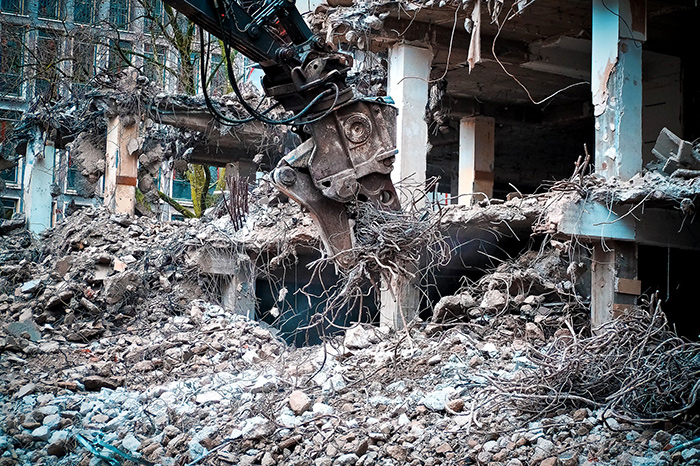Construction Companies Told To Stop Demolishing Buildings To Aid Climate Change
 Some of Britain’s top engineers are urging the government to stop buildings being knocked down. Given the vast amounts of CO2 creates from making bricks and steel, with cement alone causing 8% of global emissions, they say the construction industry should instead re-use buildings where possible. They also advise that more recycled material are utilised, and use machinery powered by clean fuels.
Some of Britain’s top engineers are urging the government to stop buildings being knocked down. Given the vast amounts of CO2 creates from making bricks and steel, with cement alone causing 8% of global emissions, they say the construction industry should instead re-use buildings where possible. They also advise that more recycled material are utilised, and use machinery powered by clean fuels.
The engineers are concerned about "embodied emissions", which is the CO2 released into the atmosphere when buildings and materials are made. Unlike carbon from aircraft, they believe that these embodied emissions are not in the general public’s minds.
The Royal Institution of Chartered Surveyors (RICS) estimates that 35% of the lifecycle carbon from a typical office development is emitted before the building is even opened. The figure for residential premises is 51%.
The report, lead by the Royal Academy of Engineering, said a different way of thinking is needed before planning new homes, factories, buildings, roads and bridges.
Professor Rebecca Lunn from Strathclyde University, one of the authors of the report, said: "Our biggest failure is that we build buildings, then we knock them down and throw them away. We must stop doing this."
Doctor Mike Cook, adjunct professor at Imperial College and one of the report’s co-authors, challenged the government's £27bn road-building programme due to the embodied emissions created to obtain the concrete and tarmac, as well as the use of very polluting machines to construct the highways, saying: "We have to radically revise the way we look at things. The most important thing is to maximise the use of existing road infrastructure by using smart motorways to maximise every inch of tarmac."
The Chartered Institution of Building Services Engineers' Dr Julie Godefroy has strongly recommended that the government to set targets for the construction industry to move swiftly towards zero carbon, including embodied emissions, saying: "We have to avoid demolition and new-build. Often most of the material in an existing building is underground - so we should seek to use existing foundations."
A spokesperson from the Department of Business, Energy and Industrial Strategy (BEIS) said: “The UK is a world leader in tackling climate change – we were the first major economy to legislate to end our contribution to climate change by 2050, and have cut emissions by 44% over the past three decades – the fastest reduction of any G7 country.
“We are committed to reducing emissions from the construction sector, and have set up the Construct Zero programme to support the industry to achieve their climate commitments.”
Ministers have recently announced £220 million of funding to help UK industry reduce their carbon emissions and improve energy efficiency.



























































